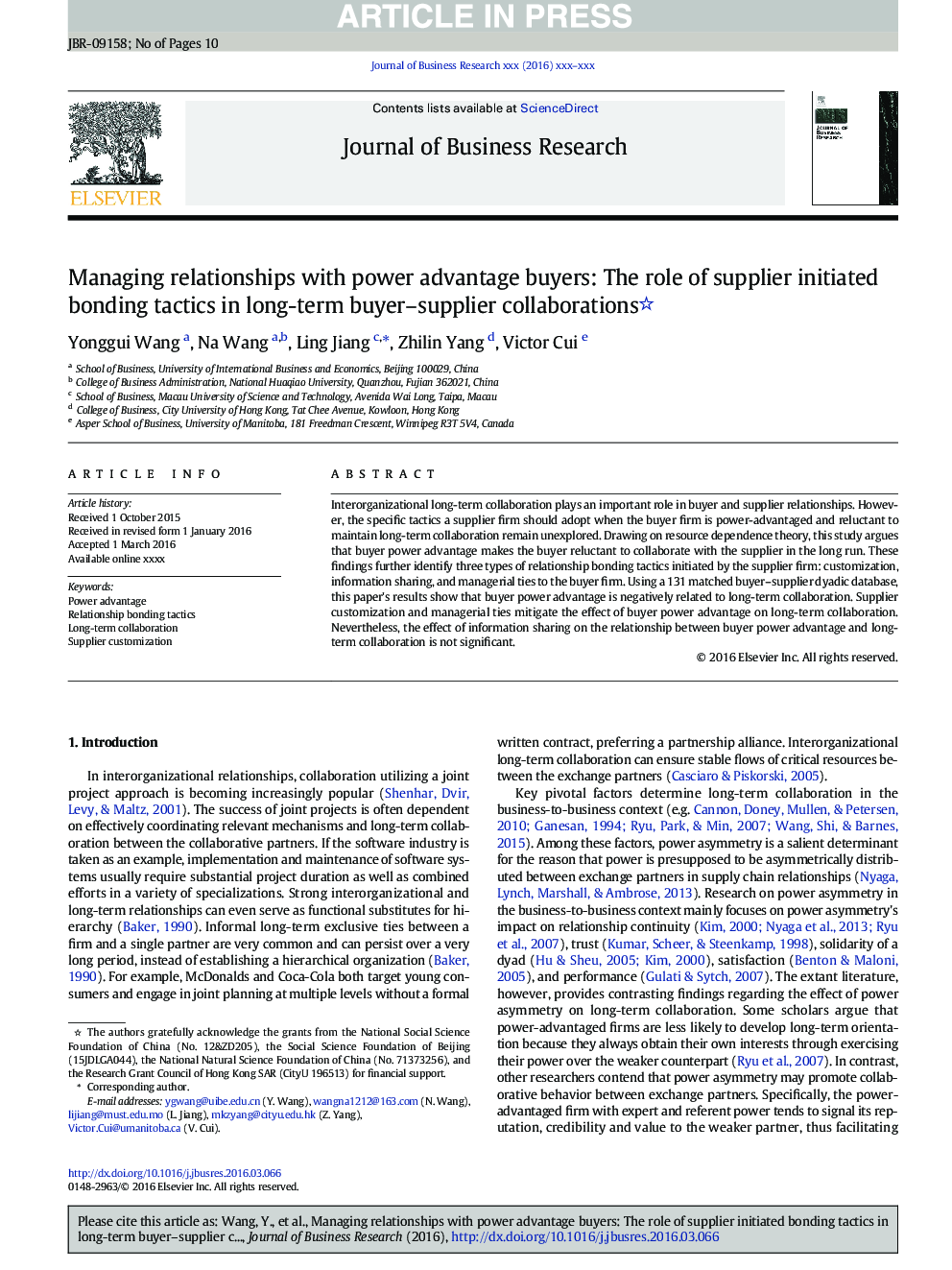| Article ID | Journal | Published Year | Pages | File Type |
|---|---|---|---|---|
| 5109629 | Journal of Business Research | 2016 | 10 Pages |
Abstract
Interorganizational long-term collaboration plays an important role in buyer and supplier relationships. However, the specific tactics a supplier firm should adopt when the buyer firm is power-advantaged and reluctant to maintain long-term collaboration remain unexplored. Drawing on resource dependence theory, this study argues that buyer power advantage makes the buyer reluctant to collaborate with the supplier in the long run. These findings further identify three types of relationship bonding tactics initiated by the supplier firm: customization, information sharing, and managerial ties to the buyer firm. Using a 131 matched buyer-supplier dyadic database, this paper's results show that buyer power advantage is negatively related to long-term collaboration. Supplier customization and managerial ties mitigate the effect of buyer power advantage on long-term collaboration. Nevertheless, the effect of information sharing on the relationship between buyer power advantage and long-term collaboration is not significant.
Related Topics
Social Sciences and Humanities
Business, Management and Accounting
Business and International Management
Authors
Yonggui Wang, Na Wang, Ling Jiang, Zhilin Yang, Victor Cui,
